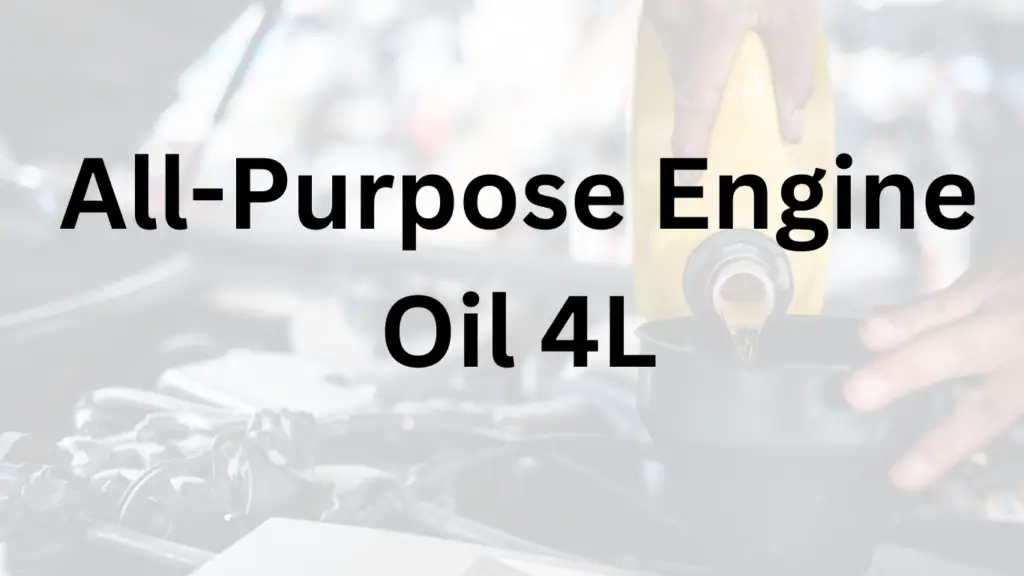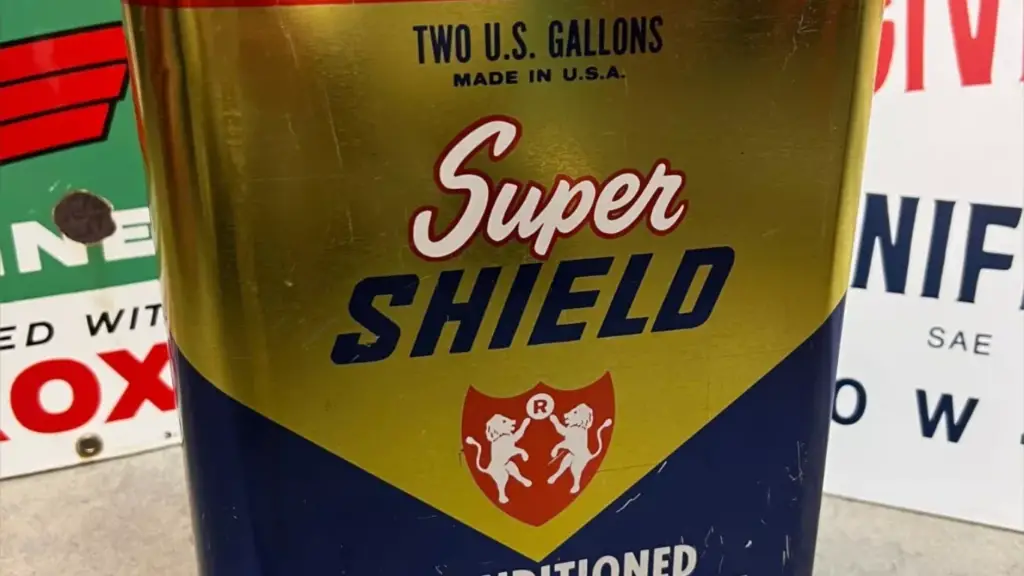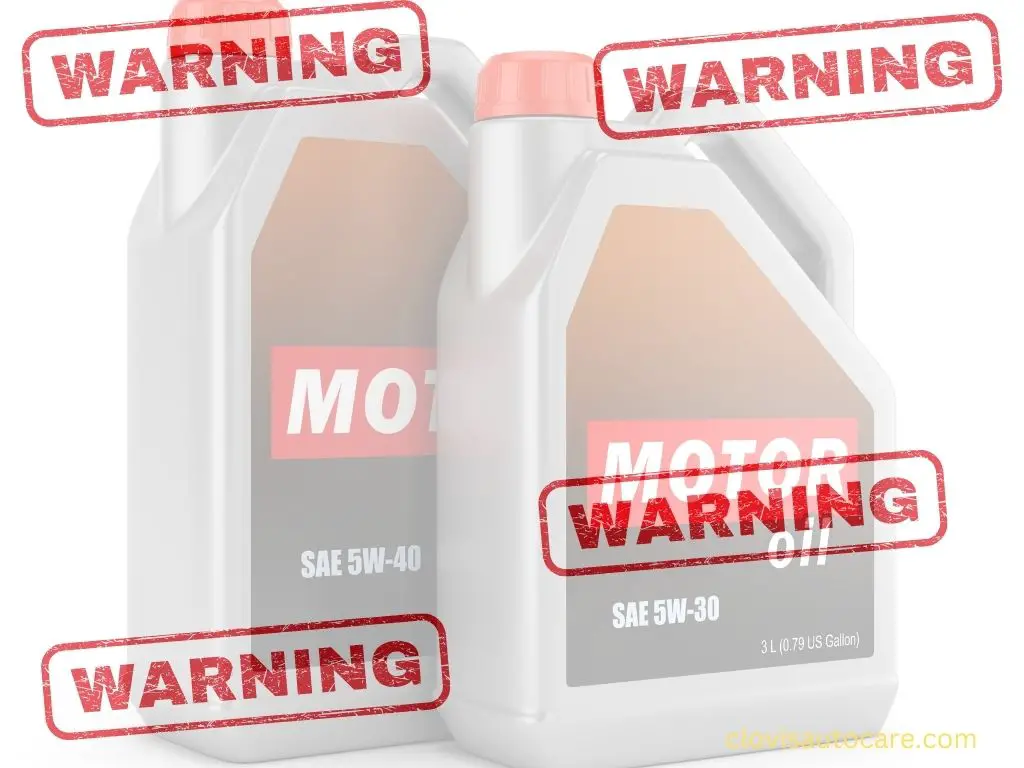You’re doing everything right to maintain your car—regular oil changes, careful driving, and sticking to a maintenance schedule.
But what if the motor oil you’re pouring into your engine quietly sabotages your efforts? Shocking, isn’t it?
Not all motor oils are created equal.
Some brands take shortcuts, providing low-quality products that can harm your engine, impair your car’s performance, and even contribute to environmental damage.
This guide reveals the 12 worst motor oil brands to avoid and introduces you to the best ones, which consistently outperform the rest.
Plus, we’ve added a handy comparison table to help you see the differences at a glance.
Let’s explore the motor oils you should avoid at all costs.
Contents
Understanding API Rating Standards
The American Petroleum Institute (API) sets performance standards for motor oils.
Oils meeting these standards display the API “starburst” symbol, indicating they protect against deposits, wear, and oxidation.
Using oils without proper API certification is the first problem your car may face.
Check my list of the top 10 engine oil brands here that respect and offer what you need.
Does the Motor Oil Brand Really Matter?
Absolutely. Reputable brands invest in research and quality control, ensuring their oils meet or exceed industry standards.
Conversely, lesser-known or budget brands may take shortcuts, resulting in oils that lack essential additives or contain contaminants with the idea of having something for everyone.
I will tell you for free that the list below doesn’t have what you need for a smooth car.
Consequences of Using the Wrong Engine Oil
Using subpar motor oil can result in:
Environmental Impact: Oils with high volatility contribute to increased emissions.
Increased Engine Wear: Lack of proper lubrication accelerates wear on engine components.
Reduced Fuel Efficiency: Inferior oils can increase friction, leading to higher fuel consumption.
Engine Deposits: Poor-quality oils may not prevent sludge buildup, affecting performance.
12 Motor Oil brands to Avoid and why
Before you go for cheap car repairs or oil changes, know some of the brands that have been rated worst in the market for your safety and wallet.
Owning a car is not easy, but using the wrong oil on it is worse than owning one.
1. X-Force Synthetic Oil

- Why Avoid: X-Force makes bold claims about superior performance, but independent tests have exposed the truth—this oil has wildly inconsistent viscosity levels.
In cold weather, your engine might struggle to start, and in extreme heat, the oil might thin out so much that it fails to lubricate properly.
Worse still, the lack of API certification indicates it hasn’t been tested to meet essential industry standards.
Do you want to gamble your engine’s health on a product that doesn’t even check the basics?
2. EconoLube Motor Oil

- Why Avoid: The name says it all—this is bargain-bin motor oil that cuts costs at the expense of your car.
It’s loaded with poor-quality base oils and minimal additives, which are crucial for cleaning engine components and preventing sludge.
Over time, using EconoLube can lead to engine deposits that clog vital parts and cause expensive damage.
Its tempting price tag might save you a few dollars upfront, but you’ll pay for it later in repairs.
3. Peak Performance Oil

- Why Avoid: Don’t let the name fool you. This oil is far from providing “peak performance.”
Its outdated formulations don’t include the advanced detergents and anti-wear agents required for modern engines.
Vehicles with turbocharged or direct-injection engines—now common on the road—may suffer from increased wear and tear.
While peak performance may have been acceptable 20 years ago, it now often leads to engine trouble.
4. Freedom Blend engine Oil

- Why Avoid: Despite being marketed with a patriotic appeal, Freedom Blend often contains recycled or contaminated oil.
While recycled oil can be refined properly, Freedom Blend skips that step, leaving behind harmful particles and residues.
Without proper industry certifications like ILSAC GF-6, you can’t trust this brand to protect your engine or comply with modern environmental standards.
5. RoadRunner Oils

- Why Avoid: This brand is notorious for misleading labeling. Viscosity ratings are sometimes inaccurate, meaning you could end up using an oil that’s too thick or too thin for your vehicle’s engine.
If you own a high-performance or turbocharged car, improper viscosity could lead to poor lubrication and overheating.
Do you want to risk engine failure just because the label lied to you?
6. SuperMax Ultra Oil

- Why Avoid: SuperMax relies heavily on marketing gimmicks to sell itself, but the actual product falls far short of its promises.
Tests show this oil lacks essential additives like zinc and phosphorus, which are vital for reducing friction and preventing wear.
It also breaks down faster under heat, requiring more frequent oil changes. Using this oil might save you time in the short term, but it’s a poor long-term investment for your engine.
7. EcoGuard Motor Oil

- Why Avoid: Here’s a prime example of greenwashing. EcoGuard markets itself as an environmentally friendly option, but testing reveals its high volatility, which contributes to increased emissions.
Worse still, its performance under stress is subpar, leading to poor lubrication in hot or high-load conditions.
If you care about both your engine and the planet, look elsewhere for a truly eco-friendly oil.
8. TorqueMaster Engine Oil

- Why Avoid: TorqueMaster boasts big claims of compatibility with all engines, but don’t be fooled.
It lacks API SN or SP certifications, meaning it doesn’t meet the basic requirements for modern vehicles.
Using this oil could result in premature engine wear, especially in newer cars with advanced emission systems.
TorqueMaster may have the name, but it doesn’t have the game to back it up.
9. All-Purpose Motor Oil

- Why Avoid: This brand of motor oil, marketed as “universal,” claims to be compatible with a wide range of equipment, including lawnmowers and high-performance cars.
In actuality, it serves a variety of purposes but excels in none of them.
Modern engines require specialized additives, which this oil lacks, making it unsuitable for vehicles with turbochargers or direct injection systems.
Using this oil is like putting generic fuel in a race car—it just doesn’t work.
10. SuperShield Oil

- Why Avoid: Despite the name suggesting superior protection, SuperShield’s performance falls short.
This oil breaks down quickly under high temperatures, forming engine deposits that reduce efficiency and power.
Independent testing has also shown inconsistent quality from batch to batch, so you can’t even rely on it to perform the same way twice.
11. ValueLine Oil

- Why Avoid: While it might seem like a good option for budget-conscious drivers, ValueLine compromises heavily on quality.
It struggles in cold weather, where it thickens excessively, making it hard for your engine to start.
This oil may save you a few bucks at the register, but it could cost you dearly in winter engine repairs.
12. MysticEdge Oil

- Why Avoid: This brand claims to offer cutting-edge technology, but it’s missing critical certifications for low-SAPS (sulfated ash, phosphorus, and sulfur) oil.
Vehicles requiring low-SAPS oil—like diesel cars with DPFs—could suffer from clogged filters and increased emissions. It’s an expensive mistake waiting to happen.
Best vs. Worst Motor Oil Brands: A Comparison
| Feature | Best Brands (e.g., Mobil 1, Castrol, Valvoline) | Worst Brands (e.g., X-Force, EconoLube) |
|---|---|---|
| Certifications | API SN/SP, ILSAC GF-6, ACEA | Often lack industry-standard certifications |
| Additives | High-quality detergents, dispersants, anti-wear | Inconsistent or missing essential additives |
| Performance in Extremes | Reliable under high/low temperatures | Poor performance in extreme conditions |
| Environmental Impact | Low volatility, eco-friendly | High emissions, misleading “eco” claims |
| Compatibility | Suited for modern engines and turbos | Often incompatible with newer technologies |
| Consumer Trust | Positive reviews and long-standing reputation | Frequent consumer complaints and alerts |
How to Spot a Quality Motor Oil
- Check for API and ILSAC Symbols: These certifications guarantee quality and compatibility.
- Read the Label: Look for viscosity ratings and ensure they match your vehicle’s needs.
- Research the Brand: Avoid oils flagged by the Petroleum Quality Institute of America (PQIA) or other watchdog organizations.
- Consider the Price: Too-good-to-be-true pricing can be a red flag for subpar quality.
Conclusion
You should not use low-quality motor oils that compromise on quality. Stick with trusted brands that prioritize quality, safety, and eco-friendliness.
With this guide, you’ll be better equipped to avoid harmful products and keep your car running smoothly for years to come.
FAQs
1. How often should I change my motor oil?
It is generally recommended to change your motor oil every 3,000 to 5,000 miles, or as specified by your vehicle manufacturer. Regular oil changes help maintain optimal engine performance.
2. Can I mix different brands of motor oil?
While it is not ideal to mix different brands of motor oil, it won’t cause any harm if done occasionally in emergency situations.
However, for best results, it is recommended to stick with one brand or consult with a professional mechanic.
3. What happens if I use the wrong type of motor oil?
Using the wrong type of motor oil can lead to reduced lubrication efficiency, increased wear on engine parts, decreased fuel economy, and potential damage to your vehicle’s engine over time.
4. Is synthetic motor oil better than conventional oil?
Synthetic motor oils generally offer better performance and protection compared to conventional oils.
They have a higher viscosity index, better resistance to breakdown, and improved fuel efficiency.
5. Can I use motor oil labeled for diesel engines in my gasoline-powered car?
It is not recommended to use motor oil labeled for diesel engines in gasoline-powered cars.
Diesel engine oils have different additives and viscosity levels that may not be suitable for gasoline engines. It’s important to always use the right kind of oil that your car manufacturer recommends.




Leave a Reply